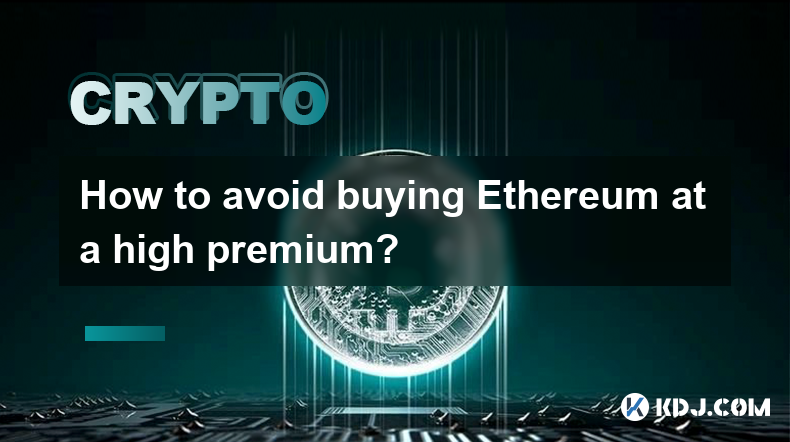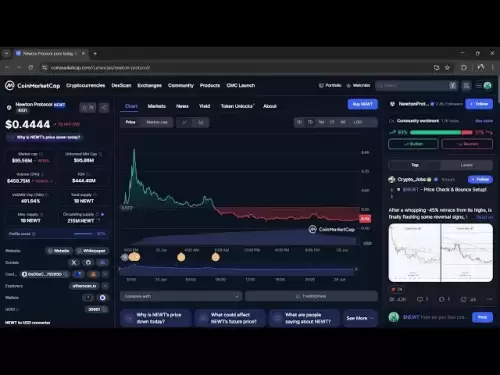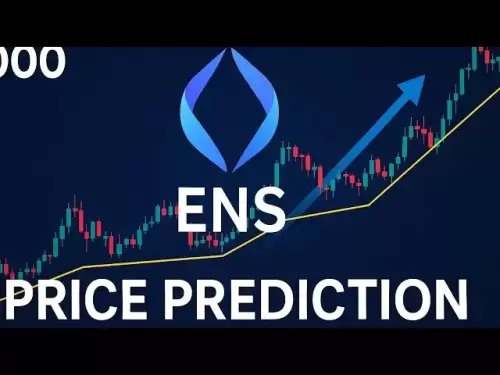-
 Bitcoin
Bitcoin $107,467.9126
1.26% -
 Ethereum
Ethereum $2,447.5288
-0.12% -
 Tether USDt
Tether USDt $1.0005
0.00% -
 XRP
XRP $2.1921
0.13% -
 BNB
BNB $647.2897
0.50% -
 Solana
Solana $144.8627
-0.37% -
 USDC
USDC $0.9996
-0.03% -
 TRON
TRON $0.2732
0.10% -
 Dogecoin
Dogecoin $0.1652
-0.18% -
 Cardano
Cardano $0.5700
-2.87% -
 Hyperliquid
Hyperliquid $37.0274
-1.81% -
 Bitcoin Cash
Bitcoin Cash $484.6957
0.19% -
 Sui
Sui $2.7354
-2.19% -
 Chainlink
Chainlink $13.1727
-1.49% -
 UNUS SED LEO
UNUS SED LEO $8.9978
-0.04% -
 Stellar
Stellar $0.2421
-2.33% -
 Avalanche
Avalanche $17.5633
-3.51% -
 Toncoin
Toncoin $2.8476
-1.94% -
 Shiba Inu
Shiba Inu $0.0...01166
-0.56% -
 Litecoin
Litecoin $85.1071
0.09% -
 Hedera
Hedera $0.1502
-2.96% -
 Monero
Monero $310.2774
-1.64% -
 Dai
Dai $0.9999
-0.01% -
 Polkadot
Polkadot $3.3584
-1.88% -
 Ethena USDe
Ethena USDe $1.0003
-0.04% -
 Bitget Token
Bitget Token $4.4443
2.90% -
 Pi
Pi $0.6242
14.04% -
 Uniswap
Uniswap $6.9774
-2.86% -
 Pepe
Pepe $0.0...09535
-5.05% -
 Aave
Aave $256.7574
-3.35%
How to avoid buying Ethereum at a high premium?
To avoid buying Ethereum at a high premium, use DCA, set limit orders, conduct thorough research, and stay disciplined to mitigate risks and emotional trading.
Mar 27, 2025 at 11:28 am

Understanding Ethereum's Price Volatility
Ethereum, like all cryptocurrencies, is incredibly volatile. Its price fluctuates dramatically based on a multitude of factors including market sentiment, technological developments, regulatory announcements, and even broader macroeconomic conditions. Buying high, meaning purchasing at a price peak before a significant correction, is a common pitfall for new investors. Avoiding this requires a disciplined approach and a deep understanding of market dynamics.
Researching Market Trends and Indicators
Before investing in Ethereum, or any cryptocurrency, thorough research is paramount. This involves analyzing various market indicators such as trading volume, on-chain metrics, and social sentiment. Understanding these indicators can provide insights into potential price movements. High trading volume coupled with positive social sentiment might suggest a potential price increase, while low volume and negative sentiment could indicate a possible correction. However, remember that no indicator is foolproof.
Utilizing Technical Analysis
Technical analysis involves studying price charts and historical data to identify patterns and predict future price movements. While not an exact science, it can be a valuable tool. Common technical indicators used by traders include moving averages, relative strength index (RSI), and MACD. Learning to interpret these indicators can help you identify potential buying opportunities and avoid buying at market tops. However, always remember that past performance is not indicative of future results.
Employing Fundamental Analysis
Fundamental analysis focuses on the underlying value of an asset. For Ethereum, this involves assessing the network's activity, development progress, and adoption rate. A strong ecosystem with growing adoption and continuous development suggests a potentially higher future value. Analyzing factors like the number of active addresses, transaction volume, and the development of new applications built on the Ethereum network can give you a better understanding of its intrinsic value.
Dollar-Cost Averaging (DCA) Strategy
Dollar-cost averaging is a strategy that involves investing a fixed amount of money at regular intervals, regardless of the price. This approach mitigates the risk of buying at a high price point. By consistently investing, you average out your purchase price, reducing the impact of market fluctuations. This strategy is particularly useful for long-term investors who are less concerned with short-term price movements.
Setting Stop-Loss Orders
A stop-loss order is an order to sell your Ethereum if the price falls below a predetermined level. This helps limit potential losses. Setting a stop-loss order can protect you from significant losses if the market unexpectedly drops. However, it's crucial to choose a stop-loss level carefully, balancing risk management with the potential for missing out on further price appreciation.
Diversifying Your Portfolio
Don't put all your eggs in one basket. Diversifying your portfolio across different cryptocurrencies and asset classes reduces your overall risk. Holding a diversified portfolio helps mitigate the impact of a potential downturn in Ethereum's price. This approach allows you to weather market volatility more effectively.
Utilizing Limit Orders
A limit order allows you to buy Ethereum only when the price reaches your specified level. This helps avoid impulsive purchases at inflated prices. By placing a limit order, you ensure you only buy when you believe the price is favorable. This is a proactive approach to purchasing, allowing you to wait for a better entry point.
Staying Informed and Patient
Staying updated on market news and developments is crucial. Follow reputable news sources and social media channels to stay informed about relevant events that could impact Ethereum's price. Patience is key in cryptocurrency investing. Avoid making impulsive decisions based on short-term price fluctuations.
Avoiding Emotional Trading
Emotional trading, driven by fear or greed, often leads to poor investment decisions. Develop a disciplined investment strategy and stick to it, regardless of market sentiment. Avoid making rash decisions based on fear of missing out (FOMO) or panic selling during market corrections.
Steps to Implement a Safe Buying Strategy
- Thoroughly research Ethereum and the cryptocurrency market. Understand the risks involved.
- Define your investment goals and risk tolerance. Are you a long-term or short-term investor?
- Develop a disciplined investment strategy. This might involve DCA or limit orders.
- Utilize technical and fundamental analysis to identify potential buying opportunities.
- Set stop-loss orders to limit potential losses.
- Diversify your portfolio across multiple assets.
- Stay informed about market news and developments.
- Avoid emotional trading and stick to your strategy.
Frequently Asked Questions
Q: What are the biggest risks of buying Ethereum at a high premium?
A: The biggest risk is experiencing significant losses if the price subsequently corrects. This can wipe out a substantial portion of your investment.
Q: How can I determine if Ethereum is currently trading at a premium?
A: Comparing its current price to its historical price, assessing market sentiment, and analyzing technical indicators can help determine if the price is inflated.
Q: Are there any tools or resources that can help me avoid buying high?
A: Many charting websites and analytical platforms offer tools and resources such as technical indicators, historical price data, and market sentiment analysis.
Q: What is the best strategy for buying Ethereum to avoid a high premium?
A: There is no single "best" strategy. A combination of DCA, limit orders, stop-loss orders, and thorough market research is often recommended.
Q: How can I manage my emotions when investing in Ethereum?
A: Develop a well-defined investment plan, stick to it, and avoid making impulsive decisions based on fear or greed. Consider seeking advice from a financial advisor.
Q: Is it possible to completely avoid buying at a high premium?
A: No, it's impossible to perfectly time the market. However, by employing the strategies outlined above, you can significantly reduce the likelihood of buying at a peak.
Disclaimer:info@kdj.com
The information provided is not trading advice. kdj.com does not assume any responsibility for any investments made based on the information provided in this article. Cryptocurrencies are highly volatile and it is highly recommended that you invest with caution after thorough research!
If you believe that the content used on this website infringes your copyright, please contact us immediately (info@kdj.com) and we will delete it promptly.
- Ethereum Ecosystem's $7.3B Fee Bonanza: Tether, Circle, Lido Lead the Charge
- 2025-06-26 17:05:11
- Bitcoin, Cryptocurrency, Price Rise: What's the Deal?
- 2025-06-26 16:30:11
- Pepe Mania: Whale Buys and the Meme Coin Frenzy
- 2025-06-26 16:50:13
- Crypto, Meme Coins, and Presales: Is Troller Cat the Next Big Thing?
- 2025-06-26 17:50:15
- Bitcoin Price: Riding the Upward Trend – Will BTC Hit New Highs?
- 2025-06-26 16:50:13
- Bitcoin Price Prediction, June 27: Will the Rally Continue?
- 2025-06-26 17:07:13
Related knowledge

How to customize USDT TRC20 mining fees? Flexible adjustment tutorial
Jun 13,2025 at 01:42am
Understanding USDT TRC20 Mining FeesMining fees on the TRON (TRC20) network are essential for processing transactions. Unlike Bitcoin or Ethereum, where miners directly validate transactions, TRON uses a delegated proof-of-stake (DPoS) mechanism. However, users still need to pay bandwidth and energy fees, which are collectively referred to as 'mining fe...

USDT TRC20 transaction is stuck? Solution summary
Jun 14,2025 at 11:15pm
Understanding USDT TRC20 TransactionsWhen users mention that a USDT TRC20 transaction is stuck, they typically refer to a situation where the transfer of Tether (USDT) on the TRON blockchain has not been confirmed for an extended period. This issue may arise due to various reasons such as network congestion, insufficient transaction fees, or wallet-rela...

How to cancel USDT TRC20 unconfirmed transactions? Operation guide
Jun 13,2025 at 11:01pm
Understanding USDT TRC20 Unconfirmed TransactionsWhen dealing with USDT TRC20 transactions, it’s crucial to understand what an unconfirmed transaction means. An unconfirmed transaction is one that has been broadcasted to the blockchain network but hasn’t yet been included in a block. This typically occurs due to low transaction fees or network congestio...

How to check USDT TRC20 balance? Introduction to multiple query methods
Jun 21,2025 at 02:42am
Understanding USDT TRC20 and Its ImportanceUSDT (Tether) is one of the most widely used stablecoins in the cryptocurrency market. It exists on multiple blockchain networks, including TRC20, which operates on the Tron (TRX) network. Checking your USDT TRC20 balance accurately is crucial for users who hold or transact with this asset. Whether you're sendi...

What to do if USDT TRC20 transfers are congested? Speed up trading skills
Jun 13,2025 at 09:56am
Understanding USDT TRC20 Transfer CongestionWhen transferring USDT TRC20, users may occasionally experience delays or congestion. This typically occurs due to network overload on the TRON blockchain, which hosts the TRC20 version of Tether. Unlike the ERC20 variant (which runs on Ethereum), TRC20 transactions are generally faster and cheaper, but during...

The relationship between USDT TRC20 and TRON chain: technical background analysis
Jun 12,2025 at 01:28pm
What is USDT TRC20?USDT TRC20 refers to the Tether (USDT) token issued on the TRON blockchain using the TRC-20 standard. Unlike the more commonly known ERC-20 version of USDT (which runs on Ethereum), the TRC-20 variant leverages the TRON network's infrastructure for faster and cheaper transactions. The emergence of this version came as part of Tether’s...

How to customize USDT TRC20 mining fees? Flexible adjustment tutorial
Jun 13,2025 at 01:42am
Understanding USDT TRC20 Mining FeesMining fees on the TRON (TRC20) network are essential for processing transactions. Unlike Bitcoin or Ethereum, where miners directly validate transactions, TRON uses a delegated proof-of-stake (DPoS) mechanism. However, users still need to pay bandwidth and energy fees, which are collectively referred to as 'mining fe...

USDT TRC20 transaction is stuck? Solution summary
Jun 14,2025 at 11:15pm
Understanding USDT TRC20 TransactionsWhen users mention that a USDT TRC20 transaction is stuck, they typically refer to a situation where the transfer of Tether (USDT) on the TRON blockchain has not been confirmed for an extended period. This issue may arise due to various reasons such as network congestion, insufficient transaction fees, or wallet-rela...

How to cancel USDT TRC20 unconfirmed transactions? Operation guide
Jun 13,2025 at 11:01pm
Understanding USDT TRC20 Unconfirmed TransactionsWhen dealing with USDT TRC20 transactions, it’s crucial to understand what an unconfirmed transaction means. An unconfirmed transaction is one that has been broadcasted to the blockchain network but hasn’t yet been included in a block. This typically occurs due to low transaction fees or network congestio...

How to check USDT TRC20 balance? Introduction to multiple query methods
Jun 21,2025 at 02:42am
Understanding USDT TRC20 and Its ImportanceUSDT (Tether) is one of the most widely used stablecoins in the cryptocurrency market. It exists on multiple blockchain networks, including TRC20, which operates on the Tron (TRX) network. Checking your USDT TRC20 balance accurately is crucial for users who hold or transact with this asset. Whether you're sendi...

What to do if USDT TRC20 transfers are congested? Speed up trading skills
Jun 13,2025 at 09:56am
Understanding USDT TRC20 Transfer CongestionWhen transferring USDT TRC20, users may occasionally experience delays or congestion. This typically occurs due to network overload on the TRON blockchain, which hosts the TRC20 version of Tether. Unlike the ERC20 variant (which runs on Ethereum), TRC20 transactions are generally faster and cheaper, but during...

The relationship between USDT TRC20 and TRON chain: technical background analysis
Jun 12,2025 at 01:28pm
What is USDT TRC20?USDT TRC20 refers to the Tether (USDT) token issued on the TRON blockchain using the TRC-20 standard. Unlike the more commonly known ERC-20 version of USDT (which runs on Ethereum), the TRC-20 variant leverages the TRON network's infrastructure for faster and cheaper transactions. The emergence of this version came as part of Tether’s...
See all articles
























































































